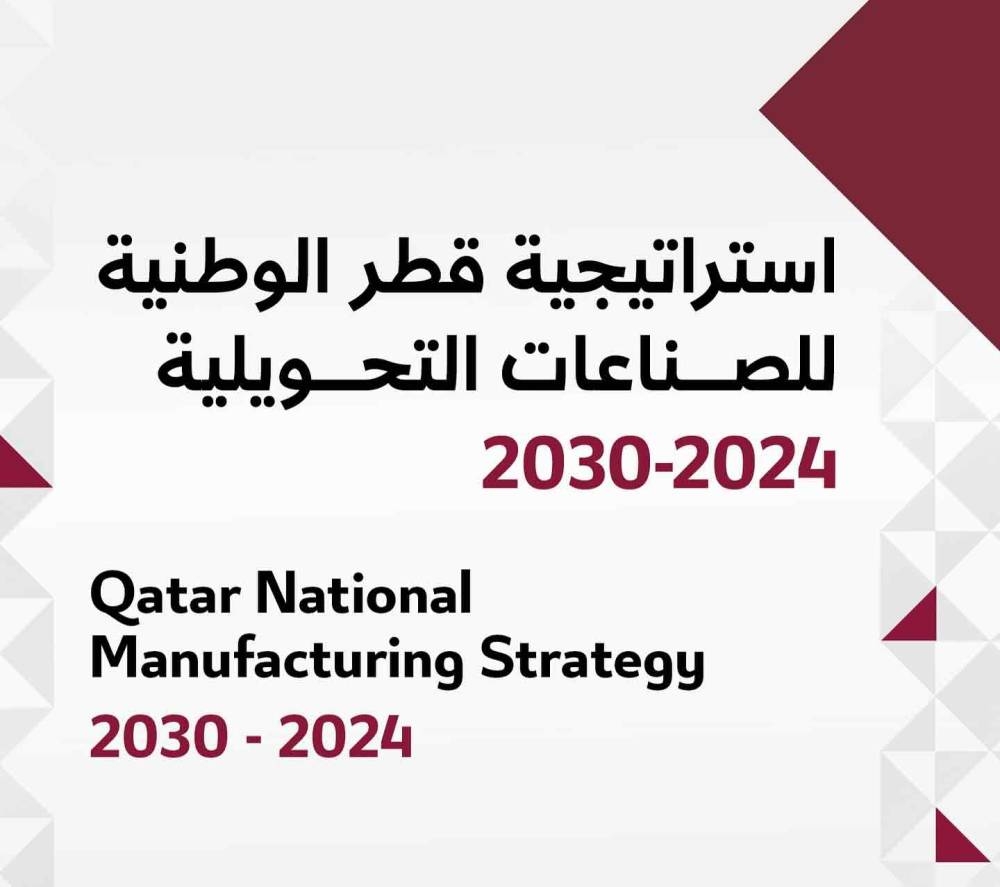The Ministry of Commerce and Industry’s (MoCI) newly unveiled Qatar National Manufacturing Strategy 2024–2030 is seeking to adopt circular economy practices and drive the nation forward through smart industries.
This was highlighted by HE the Minister of Commerce and Industry Sheikh Faisal bin Thani bin Faisal al-Thani’s speech during the strategy’s recent launching ceremony led by HE the Prime Minister and Minister of Foreign Affairs Sheikh Mohammed bin Abdulrahman bin Jassim al-Thani, where he also launched the Ministry of Commerce and Industry Strategy.
According to a primer distributed by MoCI during the launch ceremony, the Qatar National Manufacturing Strategy’s focus on green manufacturing aims to raise the percentage of Qatari factories that use circular economy practices to 35% by 2030.
Similarly, this strategy aims to raise the readiness of Qatari factories for smart industry to enable them to reach the second level of the Smart Industry Readiness Index (SIRI) by 2030.
Another key component of this strategy is Qatarisation in manufacturing, which aims to increase the percentage of the Qatari workforce from 2.2% in 2021 to 3.0% by 2030. In terms of labour productivity, the strategic goal is to increase the value-added rate per worker from 1.7% in 2021 to 1.9% by 2030.
To create a competitive and resilient manufacturing environment that contributes positively to the nation’s overall development, the strategy will also focus on knowledge-based industries to increase the proportion of Qatar’s highly skilled manpower from 23.2% in 2021 to 26.5% by 2030.
Speaking at the launch ceremony, Sheikh Faisal also emphasised that the Qatar National Manufacturing Strategy aims to strengthen the manufacturing sector’s capabilities, increase its gross output as a driver of development and innovation, and raise the sector’s value-added contribution to QR70.5bn. Additionally, it seeks to boost non-hydrocarbon exports to QR49bn and attract annual industrial investments of QR2.75bn by 2030.
The strategy encompasses 15 initiatives and 60 projects, focusing on diversifying industries by 50%, increasing the private sector’s value-added contribution to QR36bn, and positioning Qatar among the top 40 countries in the Industrial Competitiveness Index.
Sheikh Faisal also underscored the role of the Ministry of Commerce and Industry Strategy stating that it aims to diversify Qatar’s economic sectors and achieve a compound annual growth rate (CAGR) of 3.4% for non-hydrocarbon GDP, with a target of attracting $100bn in FDI by 2030. These goals support the strategy’s objectives of fostering innovation and entrepreneurship while improving the business environment to attract more international investments.
He noted that the ministry's strategy represents an ambitious roadmap that supports Qatar’s sustainable development goals to achieve balanced and inclusive economic growth, aligned with Qatar National Vision 2030 and the Third National Development Strategy (NDS3).
“The ministry’s strategy focuses on enhancing and developing the commercial, investment, and industrial sectors, which will embolden Qatar's global competitiveness, encourage innovation and sustainability, and improve the quality and delivery of services. This is underpinned by our ongoing mandate to prioritise the protection of consumer rights according to the highest global standards,” Sheikh Faisal said in his speech.
He added: “Our strategy emphasises and encourages active contribution to implement a comprehensive economic programme that builds on achievements and contributes directly to developing the national economy.
“This strategy is not merely a plan but a commitment by the ministry to the continuous pursuit of excellence and progress, enhancing Qatar’s position as a leading commercial and industrial hub on the global stage.”


